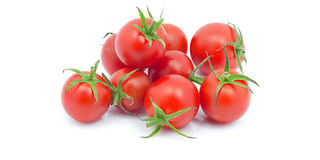Prime
Govt, partners to boost planting of neglected seed varieties

Agronomy: Tomatoes do well when transplanted from a seedbed nursery as opposed to sowing the seed directly in the field.
The government and development partners have embarked on activities to promote the growing of neglected and underutilised plant species in Teso and Lango sub-regions in a bid to fix the country’s broken food systems.
These plant species such as black beans, small tomatoes, spring onions, finger millet, climbing beans, and pumpkins, among others, are typically native to the environments in which they are grown. As such, they have adapted to local conditions, and require fewer external and economic inputs than conventional crops.
Participatory Ecological Land Use Management (PELUM) Uganda explained that many neglected and underutilised or /traditional and wild foods can also thrive in marginal areas, in arid soil or on land considered unsuitable for other purposes. This, they said, makes them an important part of climate-change adaptation strategies, and economically viable for small-holder producers.
Accordingly, this year’s Green Action Week celebrations, held in Lira City on October 6, were aimed at raising awareness of school communities and consumers on access and utilisation of neglected indigenous and wild plant species.
The species being promoted are well adapted to their native environments, highly nutritious and medicinal in nature to better manage climate change, and improve on food and nutrition security among schools, according to the Church of Uganda- Teso dioceses planning and development office (COU-TEDDO).
Mr Patrick Olinga, the project officer in-charge of agribusiness, said COU- TEDDO and other partners have been creating awareness.
“So, we need to go back and say that yes, however much we are utilising these foods we need to preserve them, keep them for our future generation...because right now most of the children don’t know these foods,” he said.
“So, as TEDDO, we are trying to promote and ensure that the communities get to appreciate it and begin to practice it. In that way, we can ensure that our food systems will be sustained,” he said.
A food system is defined as an interconnected web of activities, resources, and people that support human nourishment and sustain health. This includes food production, processing, packaging, distribution, marketing, consumption, and disposal.
Mr Patrick Ogwang, a farmer from Lira City, said smallholder farmers are being pushed away by hybrids (scientifically modified organisms).
“In Lango, there was an indigenous maize species called nywagi apio, which was drought resistant and high yielding. Even if there was no rain we would harvest. We used to also have millet, sesame seeds, climbing beans and black beans,” he said.
Mr Ogwang added: “All these are being abandoned for the hybrid varieties that the scientists are manufacturing in the name of commercial agriculture. Secondly, we are also facing a serious threat from climate change.”
Ms Christine Ongom, the communications officer for Eden Rock Farm, said they are farming indigenous plant species on their farm in Lira City.
“We have organic fertilisers, which we make, organic manure at the farm; we mixed the rabbit’s urine with human urine, cow and goat dung, we ferment these things for at least 21 days and we spray them on our food crops then you can get a very good harvest at the end of the day,” Ms Ongom said.




